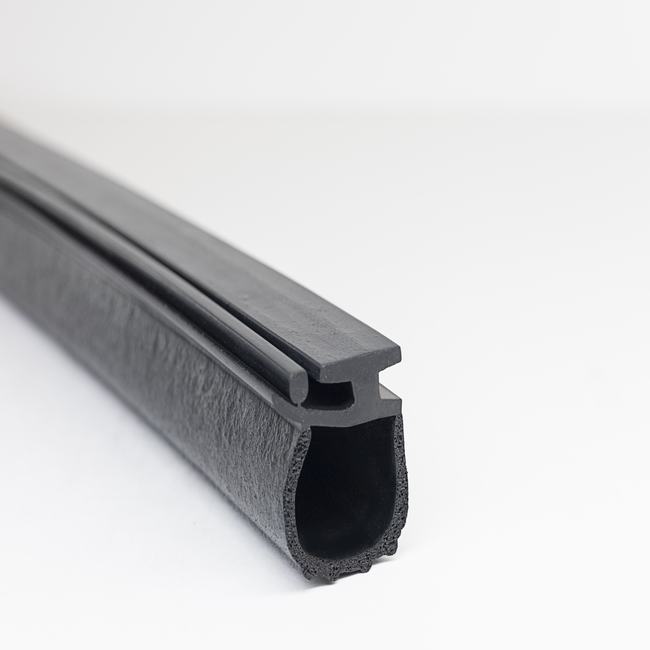Automatic door seals, also known as automatic door bottom seals, are specialized sealing mechanisms designed to provide efficient and automatic sealing for doors, typically at the bottom of the door. These seals are commonly used in commercial and residential buildings with automatic sliding or swinging doors to improve energy efficiency, sound insulation, and weatherproofing. Here are some key features and applications of automatic door seals:
Features and Characteristics:
- Automatic Operation: Automatic door seals are designed to self-adjust when the door is opened or closed. As the door is engaged, the seal is lowered to create a tight seal, and when the door is opened, the seal retracts to clear the doorway.
- Flexible Sealing Material: The sealing mechanism often features a flexible gasket or brush seal made of materials like silicone, neoprene, or bristle strips. These materials are effective at creating a barrier against drafts, noise, and external elements.
- Adjustable: Many automatic door seals are adjustable in height, allowing for customization to match the specific gap between the door and the floor. This ensures a precise and effective seal.
- Durable Construction: These seals are typically constructed with durable materials like aluminum or stainless steel for longevity and resistance to wear and corrosion.
- Energy Efficiency: Automatic door seals are instrumental in improving the energy efficiency of buildings by preventing the loss of heated or cooled air. They contribute to reduced energy consumption and lower utility costs.
- Sound Insulation: The sealing mechanism helps block noise transmission between rooms or from the outside, creating a quieter and more comfortable environment.
Applications:
- Commercial Buildings: Automatic door seals are commonly used in commercial spaces, such as office buildings, retail stores, and hotels, to enhance indoor comfort and energy efficiency while maintaining ease of access through automatic doors.
- Hospitals and Healthcare Facilities: In healthcare settings, where maintaining a sterile and quiet environment is essential, automatic door seals play a role in noise reduction and climate control.
- Residential Entry Doors: Some residential automatic doors feature bottom seals to improve insulation and weather resistance. They can be used on front entry doors, patio doors, or other exterior doors.
- Hotel Rooms: In hotels, automatic door seals contribute to noise reduction between rooms and corridors, enhancing guest comfort.
- Schools and Educational Institutions: Automatic door seals can be installed in schools to reduce noise transfer between classrooms and hallways, providing a better learning environment.
- Conference Centers and Auditoriums: Venues hosting events often use automatic door seals to minimize noise leakage and maintain climate control.
- Retail Environments: Retail stores with automatic sliding doors use these seals to maintain comfortable interior temperatures and reduce noise from the street.
- Cleanrooms and Laboratories: In environments requiring strict control of contaminants and temperature, automatic door seals are essential for maintaining the desired conditions.
Automatic door seals are valuable components in modern building design, contributing to energy efficiency, comfort, and acoustic performance. They are an integral part of automatic door systems, helping create airtight and soundproof seals when doors are closed while allowing easy access when doors are opened. Proper installation and maintenance of automatic door seals are essential to ensure their continued effectiveness.


